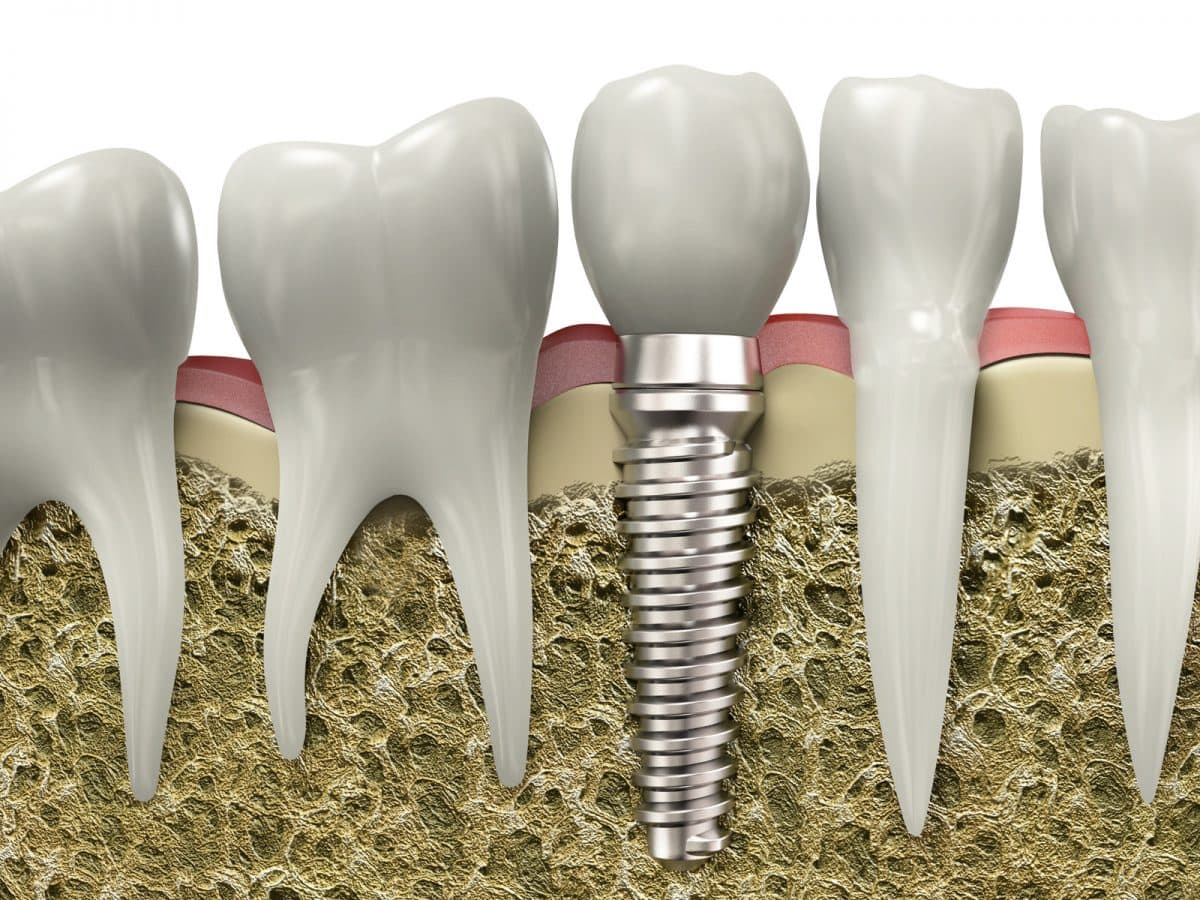Dental implants have been used to replace single, multiple and complete sets of missing teeth for decades. Thanks to advances in technology and investments by dentists in training, equipment, staff, professionalism and excellence, implants have a success rate of 95 to 95% as determined by multiple studies.
What contributes to the status of dental implants in York as the “gold standard” for replacing missing teeth, and to that soaring success rate. There are several factors: The experience and expertise of your dentist in York; the unique biocompatible qualities of implant materials; and patients’ careful commitment to taking care of their implants to avoid the small but possible risk of post-implant infections.
How to care for an implant
The materials your implants are made of are not themselves vulnerable to bacteria, but the tissues around your implant and restoration are vulnerable to bacteria, tooth decay and gum disease. Tooth decay in adjacent teeth and serious gum disease in the area of your implants can destroy tissue around the implant. A potential implant-specific infection called peri-implantitis can result from poor oral hygiene as well as from smoking tobacco, an immune system deficiency, a misaligned bit, habits such as sleep or awake bruxism and rare allergic reactions to the implant itself. To eliminate the most common risk factor for developing peri-implantitis — poor oral hygiene — follow these simple recommendations to care for your implant:
- Brush your teeth at least twice daily with an intentional focus on cleaning the implant each time
- Use a soft-bristled toothbrush and non-abrasive or low-abrasive toothpaste
- When brushing the implant itself, brush thoroughly around and under your crown
- To ensure you clean betweenyour implant and neighbouring teeth, use an interdental brush. An interdental brush is a small brush designed specifically to clean between Using an interdental brush is not a substitute for flossing between teeth or brushing all your teeth, but is an additional and essential way to ensure the health of your implant.
- Floss your teeth daily, including between your implant and neighbouring teeth and along your gums around your implant
- On a weekly basis an oral irrigator, a “water pick” that uses pressurized water to clean debris from gums and teeth
At your regular dental checkups, your dental hygienist will clean your implant using special implant-specific tools and will be sure to remove all plaque, tartar and bacteria in your mouth, on your gums and around your implant to minimize the risk of developing peri-implantitis.
What are the symptoms of peri-implantitis?
Your dentist can diagnose and confirm the presence of peri-implantitis quickly and in a non-invasive way during a dental examination with confirmation from a radiograph (a type of x-ray). If you are experiencing any of the following symptoms and have not recently attended a dental examination, arrange an appointment with a dentist near you for a thorough examination of your implant and gums:
- If your implant feels even slightly wobbly or loose — to any extent at all
- If your gums around your implant look red, puffy and inflamed
- If you have persistent bad breath
- If you experience a foul taste in your mouth and/or notice any discharge or bleeding from around your implant
- If you can see the implant itself (as opposed to the crown attached to that implant)
- If you are experiencing an unexplained fever
Many of those symptoms are similar or related to those of serious gum disease which is also an essential reason to consult with a dentist. The symptoms are all the more potentially serious if you have a dental implant, no longer how long it has been since you received it.
Getting a timely examination and diagnosis increases the number of treatment options to restore and to protect your health and even to save your implant. While implant-related complications and infections are rare, peri-implantitis can — if ignored or allowed to progress for too long — result in the loss of your implant and cause systemic infections elsewhere in your body. If you have an implant and ever experience these symptoms, contact a dentist as quickly as possible.

